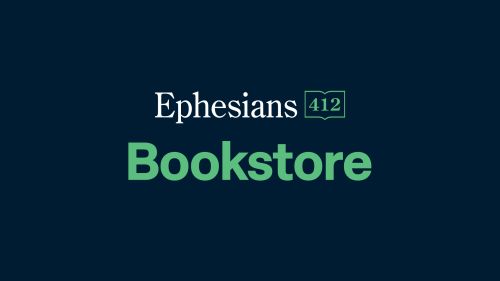For much of the developed world, the eighteenth and nineteenth centuries gave birth to the age of spiritual revival. Marked by the expansion of missionary presence around the globe, the Industrial Revolution in Europe, and the developing nation in North America, revival found its way from the corner of Aldersgate to the yards of Yale and Princeton. Seminaries and academic institutions began to erupt from the landscape as new converts and skeptical academics gathered for training and education in this now bourgeoning religion. But what the eighteenth and nineteenth centuries meant for propagation and expansion of religion in a post-reformation, post-enlightenment culture, the twentieth century was equally as influential when it came to the dialogue of that same religion.
Developments of the twentieth Century
Marked less by economic, industrial and national development, the twentieth century is marked by two World Wars and a handful of other blemishes which tarnish the record of humanity. In the wake of nineteenth century revivals in both the academy and the lay world, the latter portion of the century boasted an overwhelming shift from what was seen as orthodox Christianity, to a new modernistic approach to the faith. Picking up where Adolf Von Harnack and Wilhelm Herrmann left off, a new breed of liberal theologians sought to further develop theological and philosophical ideologies in light of liberal views of Scripture, revelation, God and man.
The Neo’s
By the dawn of the twentieth Century, Germany had established itself as a bastion head for Protestant and Lutheran education. In lieu of the liberal take over in which textual criticism had discredited Biblical inspiration and inerrancy, and done much to attack the divinity of Christ, there were two options for a German trained theologian: either accept the trajectory of liberalism, or push back against it. The former approach lead to the rise of the Neo-liberals, and the latter produced the Neo-Orthodox camp. “Neo,” or new, in terms that both groups sought to tackle theological issues in light of (either for or against) a liberal view of religion.
The Neo-Liberals were established on the shoulders and minds of men such as Rudolf Bultmann and Paul Tillich. These men were followed in thought by Jurgen Moltmann and Wolfhart Pannenberg in the mid-1900’s, but the continuation of Neo-liberalism was indebted to Bultmann’s view of scripture and Tillich’s view of God. Both would prove to reach far beyond their followers and have a profound impact on Christianity as a whole.
Bultmann sought to demythologize scripture with virgin eyes. Rather than discarding the myths of scripture, we simply learn to demythologize them from their Judeo-Christian context. This means that a reader of scripture must look at the recorded events (the historie) and decode the lasting significance hidden in the event (the geschiecte). This leads to an allegorical hermeneutic which is not bound to any set of beliefs because we have been trained to look at the events through demythologized eyes. For Bultmann, the story of Adam and Eve doesn’t communicate the Christian myth of original sin, rather is shows humanity’s refusal to accept the gift of authentic experience.[1]
Tillich sought not to discredit the existence of God, on the contrary he sought to find the basis for God. Tillich’s theological method contributed to his theology. Tillich looked first to culture, and then to theological musing. He saw doctrine to be used as a tool by the church and by culture, rather than theology holding the prior two captive. This was his apologetic, or “answering” theology. In Tillich’s eyes God was not “a being,” God was “nature of being.” God exists because we exist. God is the being in which all beings find their ground. He is the grounding force for all reality. Years later this would prove critical for many process theologians and also for Multmann’s view of Christ.
But there were also those who evaded the fatal grasp of full-fledged liberalism and managed to escape with only scars: scars which still provided a shaping influence on doctrine; especially that of revelation and faith. Karl Barth is one of the most preeminent, and most read of the Neo-Orthodox theologians of the century (rivaled only by his later contemporary, Dietrich Bonhoeffer). Influenced by the lingering nineteenth century thoughts of Schleiermacher and Kant, Barth underwent a sort of theological reformation in his own right. Choosing not to throw out Biblical inspiration and the divinity of Christ, Barth led a resurgence in Christocentric preaching and ministry. Part of this resurgence was due to his doctrine of revelation. Barth saw a sinful and depraved man who is in need of divine revelation in order to receive salvation. Christ, being the fullness of God’s revelation (Col 1:19-20), is therefore the climax of God’s revelation to man. Jesus Christ is literally the word of God. The Bible is the word of God in that it bears testament to Jesus, not on its own merit. This led to Barth’s heavy handed, and much needed Christocentric messages. Barth also responded to the views of Tillich and other Neo-liberals when it comes to God. Rather than seeing God as imminent (as in Tillich’s basis of “being,” everywhere around us), God is transcendent, in that he is wholly other to his created people. This contributed to Barth’s emphasis of needed revelation and view of Christ, which while being delightfully Christocentric, still falls short of modern evangelicalism’s view of revelation.
Barth’s contemporary, and at times partner, Emil Brunner also brought much to the table in terms of Christocentrism. Brunner saw a faith in Christ as the ultimate need for salvation. He erred from Barthian thought when he reasoned that humans have certain “points of contact” through which we may receive God’s special revelation. Through the reception of such revelation, and the act of “believing thinking”[2] one is brought into salvation. For Brunner, salvation doesn’t come from believing a certain set of dogmas. Salvation is the experience of relationship between a believer and Christ. One is saved by an encounter with Christ, not a confession of creed. While Brunner’s theology is typically categorized on the conservative side of liberal theology, his ideas on experiential salvation were critical for the thoughts of others.
The Trickle Down Theology
By the mid-twentieth Century, the world had seen the passing of the Neo-Fathers, but had also seen the passing of the second, and bloodiest, World War. Both would have a profound shaping effect on the landscape of Christianity for the remainder of the twentieth Century. Following in the footsteps of Bultmann and Tillich, came the contemporary neo-liberalism of Moltmann and Pannenberg. Multmann, who was drafted by the Germans during the war, was scarred by horror of humanity as seen in the War. He sought to apply this theology in a relevant and therapeutic way. The people of Christ must find their identity in the risen Christ who contributed to the defeat of death and brought a great transformation. Christians then must be a contributing force whose theology “must unmask the forces that destroy nature, and it must seek to provide resources for a responsible partnership with nature.”[3] He sought, pushing past Brunner, to define Christianity as not theoretical acceptance of doctrine, but a life of following Jesus and contributing to a greater transformation. This transformation takes place by how we relate to Christ, to others and to nature. Pannenberg, who himself was taken into Germany’s Hitler Youth program, dreamed with Moltmann about a future in light of Christian contribution. Pannenberg’s theology was based in a radical eschatology in where the future events find their meaning in the present events. We must contribute to a greater future, as the future is the source and power of being.[4]
The ravages of war led Pannenberg and Moltmann to find a greater call for social action inside their view of salvation. Another group of theologians saw another call for social action, one which would result in salvation. The term social gospel can be interpreted in many ways in our modern context, but the most radical proponents of it were the liberation theologians of the twentieth century. These theologians saw the cross of Christ as the sign of the world’s oppression, and saw the resurrection of Christ’s call to overcome it. Gustavo Gutierrez saw theology to liberate those in third world poverty, and outspoken Black Theologians like James Hal Cone saw true salvation as one who accepted their true blackness and lived in a liberated black state.[5] The Feminist Theologians also began to rise up against the oppression of patriarchal theology, and male dominion. Whether you were black, white, brown, male, female or goddess, the liberation theologians sought to exercise Christ’s salvific value in terms a real tangible liberation of the oppressed.
Tillich’s idea of all things being “grounded” in God was not a passing fad in theological circles. As liberation theology began to take off (and has still proved to be a topic of great importance today), so too did process theology. Laid on the foundation of Tillich, Charles Hartshorne promoted panentheism: which “distinguishes God from the ‘all’ and yet makes him include all.”[6] Hartshorne and his pupil John Cobb saw all reality as a series of occurrences rather than a single progressive event. As we experience these occurrences we have the ability to act in them in such a way that we bring about the fullest potential of that series of events. God himself is a process, but has a definite and desired outcome for the world. According to process theologians, “God, defined as person, is the continuously self-surpassing reality, ever succeeding itself.”[7] It is as if God is an event. An event which is unfolding over time, but one which will eventually manifest its ultimate form through the progress of humanity and time.
The latter years of the twentieth century also birthed a growing number of pluralistic theologians who sought to bridge religions together through compatible pursuits and causes. One critique of Barth was that his view of revelation may have over valued our “experience” with Christ. Where can we experience Christ? Can we experience him in a Buddhist temple? It is questions like these, which Barth never gave succinct answers to, which led to an increasing pluralization. In the 1960’s, Vatican II expanded the historically narrow view of salvation in terms of how people relate to the church. At Vatican II was George Lindbeck, who was invited to represent the Lutheran World Federation. Lindbeck saw theological diversity inside of the church not only as possible, but desirable.[8] Going even farther than Linbeck was John Hick who saw experience as the credible justifier of any individual’s faith. So long as humans are becoming aware of what Hick calls, “The Real,” they find themselves “saved.” This theological track led Hick from evangelicalism, to inclusivism, to complete pluralism.
Evangelical Pushback
Amidst all of this hurried discussion, dialogue and debate was the response of evangelical theologians. The most primary of whom was Carl F. Henry. The founder of Christianity Today, plowed much hard ground in terms of Biblical inerrancy, God, and Revelation. For those looking through orthodox evangelical eyes at the twentieth Century, Henry was an oak who rang with a particularly comforting “thud” when struck. What Henry meant for inerrancy, Donald Bloesch meant for Christocentrism. In a world where Christ had been lost or misinterpreted, Bloesch found himself mid-Barth when it came to an emphasis on Christ. Bloesch recovered much of Barth’s Neo-Orthodox flair, but managed to find a more conservative grounding in evangelical theology than Barth did. While neither of these two would call themselves fundamentalists, they certainly played their role in bolstering the orthodox essentials of faith, and providing a solid stand for evangelicalism to lean on heading into the twenty-first Century.
Analyzing Theological Process
The brief, and probably oversimplified, snapshot of twentieth Century theology as given above spent a generous amount of time on the Neo-Orthodox and Neo-Liberals of the previous century. That is because, and I believe the progression above shows it, they seemed to set the tone for the theological discussion moving forward. This forces us to stop and gauge what it is that causes such diversity and splintering inside of Christianity. Gregg Allison promotes the necessity of this answer when he says cultural and individual forces have, “converged to foster an atmosphere in which too many Christians pick and choose their doctrines like they pick and choose their clothes or fast-food meals.”[9] Why is this so? In my opinion, Newton’s third law of motion also applies to theology. There will always be opposite reactions to any theological push, or theological void. As time progresses cultures and social norms change. These changes demand answers and contextualization to all beliefs, theological ones included. Often times it has been the orthodox, or fundamental, branches who have been slow to react, and this causes others to fill the void. This was true for the Jews and Gentiles of the first century, the desert monastics in the early church, the Reformers of the 16th century, and slavery in the eighteenth century. The church will always have to respond doctrinally to cultural phenomena and development. The question is, what dictates our response?
This is why I chose to major on the tribes of Bultmann and Barth. Both lean toward different poles, but both erred on a similar issue: Biblical authority. When Biblical authority is challenged, you lose the ability to stand affirmatively on the claims of scripture. I think this is seen when looking at the progress of twentieth century theology. Stemming from the liberal movement, and liberal view of scripture, you have the Black Theology, Process Theology, Pluralistic Theologies, Feminist Theologies, Post Liberal Theologies, and a Catholic Theology which reassessed its view of authority at Vatican II. Yet on the side of Evangelical Fundamentalism, which holds to a Biblical Authority, you see little movement in terms of theology Instead you see an affirmation existent theology, and a response to other theologies (which include introspection of practices and priorities). That is because there is less place to swing when you have a shorter rope. When you begin to discount the Bible in terms of revelation and authority, I find it hard to find any place to stop the theological speculation. Todd Miles goes as far to say, “When the Christian’s testimony of God in Christ is either denied or relativized, then the discussion has turned away from the God of Christianity.”[10] Allison echoes this, “though the church may refine and strengthen the proverbial wheel, it has no need to reinvent it…the magisterial or authoritative role belongs to Scripture, and Scripture alone.”[11]
I think when Biblical Authority becomes discarded, the swinging of philosophy and theology know no end. But it is important to remember that God is not found in the shadow of man, man is made in the image of God. To lose this insight into our own existence allows us to become god of our own interpretation, and the pendulum will swing, and the church of Christ will be forced to adapt and be challenged to hold and provide the faith once delivered.
Looking Ahead
I am writing from a strictly evangelical, and probably fundamental approach. But let me be the first to say that some of the liberal challenges to the church have been needed challenges. We ought to be pushed by our critics. We should out care and out serve the social gospel, out love the experientialists, and out progress the progressive theologians. The gospel trumps all things and becomes all things to all people. That is the beauty of revelation.[12] But I can see four major points of conflict moving forward in the twenty-first century. The first is that of Biblical authority. This will be challenged the hardest, and historically is dug down deepest. When this goes, the others will soon follow. Without a strong view of scripture we will no longer be able to make absolutes in areas of cultural confrontation: gay marriage, gender roles, abortion and so many other issues will lose (and have already began to lose) an authoritative voice.
Secondly I think the great debate of how the church handles gender roles will continue. This has already split many denominations when it comes to female ordination, and will soon push past the mainline and contend for the evangelical strongholds. Churches must have an authority on which to respond to the increasingly aggressive feminism. Along with this issue is that of homosexuality. If the church concedes Biblical authority, we will accept them in love and accommodate their sinful behaviors. If the church holds to Biblical authority, we must find answers for how to lovingly accept, yet theologically deal with those who struggle with this sin.
Thirdly I think we will see an increased swing toward some sort of inclusivism, if not a pluralism. This decade has already been marked by a self-proclaimed evangelical promoting such a transition.[13]
Ultimately the church is in God’s hands, and he will preserve his people. The church will never be extinct, and one day the glory of the Lord will cover the earth as the waters cover the sea. But let the twentieth century teach us the importance of holding to a Biblical authority. If we give up this authority, orthodox Christianity will be seen as an outdated and hostile faction of a dead religion. Not only will it be hard to justify our claims in light of cultures demands, but even if we do attempt to justify them, on what grounds do we do it? We have no authority on which to base our claims. But if we hold on, we can fight back in the light. We can preach the gospel of Christ and him crucified while we are afforded the open air on which to do it. We will learn to worship in the shadow, but we will also learn to labor in the light.
[1] Reeves, Josh. Article: Bultmann and Demythologization. 2005
[2] Meuller, David: A New Handbook of Christian Theologians: Emil Brunner. Pg 103
[3] Lorenzen, Thorwald. Ibid, 308
[4] Peters, Ted. Ibid, 369
[5] Copeland, M. Shaw. Ibid, 125
[6] Griffin, David Ray. Ibid, 206
[7] Cuchocki, Marjorie. Ibid, 111
[8] Marshal, Bruce. Ibid. 273
[9] Allison, Gregg. Historical Theology. Pg 26
[10] Miles, Todd. A God of Many Understandings. Pg 166
[11] Allison, Gregg. Historical Theology. Pg 24-25
[12] Harvie Conn gives a great defense of contextualization through Biblical revelation in his book, “Evangelism: Doing Justice and Preaching Grace” on pg 14.
[13] Bell, Rob. Love Wins. 2011




